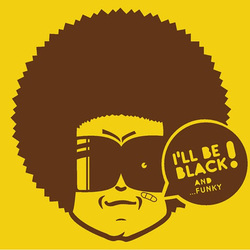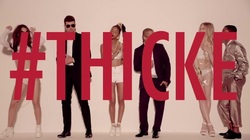
A few of you cats may have heard of a song called “Blurred Lines”. Its this song that was supposedly written in less than an hour during an impromptu studio session by Robin Thicke and Pharrell Williams. The motivation for the song was Marvin Gaye’s “Got To Give It Up”, an iconic song from the Disco era, which took much more than 1 hour to record. In fact Robin Thicke said that “Got To Give It Up” was one of his favorite songs of all time. Who would have thought that the source of such a song would become the target of a copyright lawsuit?
Yes it is true. Robin Thicke, Pharrell Williams, and TI (Clifford Harris Jr.) have preemptively sued Marvin Gaye’s family over the track “Blurred Lines”, a relative new comer to the pop-music scene and already placing number one on the U.S. Billboard top charts list (if anyone is off-put by my unfamiliarity with hip hop music, please forgive me as I just don’t “roll” with hip hop or pop music, as it were). Marvin Gays’s family was originally threatening litigation against Robin Thicke and Pharrell Williams to secure financial compensation for T.I.’s inclusion of elements of Marvin Gaye’s well-known tracks “Got To Give It Up” and “Sexy Ways”. Now there is word that Thicke and Williams offered Marvin Gaye’s family a very cool six-figure cash settlement offer to make the case go away, but to no success. So Thicke and Williams filed the lawsuit.
Why is Marvin Gaye being sued, you might ask, when his song was copied by someone else? Good question. It is actually a relatively common strategic move that many copyright infringers pull in order to put themselves in a more favorable venue, and it is also a way for T.I. to set the table for the lawsuit. For example, they will get to argue that Marvin Gaye’s claim is really to a particular genre and not specific melodies or lyrics in a song (which is what copyright truly protects).
In their suit against Marvin Gaye’s family, Thicke and Williams are claiming that Gaye’s copyright claim in “Got To Give It Up” is just too funky (I mean not exactly valid), because what Gaye is claiming a right to is actually a genre or a particular sound. As the argument goes, copyright doesn’t extend to entire genres. Rather, copyright only protects the particular composition of music, lyrics, and the sound recording itself because to allow one artist to exclude everybody else from writing or performing any other songs following a particular genre is just too extreme. Also, Thicke and Williams argue that simply because “Blurred Lines” brings to mind another song or even a sound is no reason for a song to be found infringing.
So who has a more viable claim in this case? Copyright law gives a copyright owner the exclusive right to reproduce their work and make derivative works (which is a fancy word for other works that are based on the original work). This means that other people cannot copy any portion of the copyright owners’ work without permission of the copyright owner. The easiest way to prove that a work was copied is that the infringer admits to the evil deed. But how often does that happen? More then you might think, especially given the tendency of some musical artists (as the free spirits that they are) to talk a little too much.
Take the case of Thicke and Williams. In a recent GQ interview, Thicke explained the motivation behind making “Blurred Lines”:
“Pharrell and I were in the studio and I told him that one of my favorite songs of all time was Marvin Gaye’s ‘Got to Give It Up.’ I was like, ‘Damn, we should make something like that, something with that groove.’ Then he started playing a little something and we literally wrote the song in about a half hour and recorded it.”

Perhaps Thicke and Williams really just want to lay a fine line between copying and inspiration. After all, it isn’t necessarily copyright infringement if an artist is inspired by an earlier song, especially if the later artists’ inspiration has more to do with the genre than the particular song. Unfortunately for Thicke and Williams, the line between copying inspiration in this case is, might I say, somewhat blurry.


 RSS Feed
RSS Feed